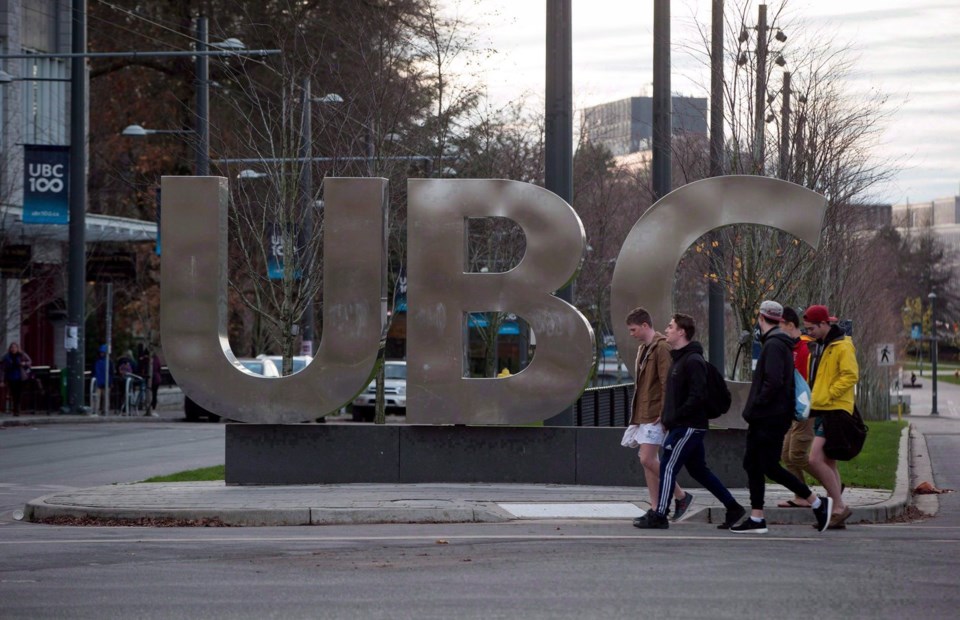OTTAWA — The Supreme Court of saąúĽĘ´«Ă˝ has dismissed a bid to appeal by accusers of former University of British Columbia writing professor and novelist Steven Galloway, paving the way for his defamation case against them to go to trial.
Galloway sued several people in saąúĽĘ´«Ă˝ Supreme Court in 2018, alleging he was defamed with false sexual assault allegations by fellow professors, a former student and others who repeated the statements on social media and elsewhere.
Galloway's lawyer, Dan Burnett, said Thursday that the high court's decision was a "relief" to his client, who wants to "clear his name" after more than five years of legal wrangling trying to get his defamation lawsuit to trial.
"Steven can finally move his case forward to a trial and have his claim heard," Burnett said. "He's a very determined man who has been badly wronged. He has stuck it out and he will stick it out to the end and have at long last his reputation finally cleared when the matter gets finally to a trial where the truth can properly come out."
Galloway is the author of novels including "The Cellist of Sarajevo" and "The Confabulist".
He was also the chair of the creative writing program at UBC, but was suspended and later fired after the allegations against him emerged.
Thursday's ruling by saąúĽĘ´«Ă˝'s high court, which also awarded Galloway costs, effectively upholds a saąúĽĘ´«Ă˝ appeal court finding in January that the alleged defamatory statements were not protected by the province's Protection of Public Participation Act.
The appeals had hinged on saąúĽĘ´«Ă˝'s law against "strategic lawsuits" which aim to "silence or deter" commentary on matters of public interest.
Burnett said getting Galloway's case to trial is now a priority after clearing the high court.
His client's reputation had been "devastated" by the allegations and "the legal process is how you address that," he said.
"Steven's reputation and life were devastated by criminal allegations that most of us, I think, could not even imagine having to suffer through," Burnett said.
saąúĽĘ´«Ă˝ Supreme Court judge Elaine Adair had ruled in December 2021 against arguments by former student Chelsea Rooney that accusations of sexual assault must be protected speech, true or not, and "regardless of the circumstances in which the statement was published."
"There would be no legal consequences of any kind attached to publicly calling someone a rapist, completely outside of any formal reporting, and no obligation ever to prove the statement was true," Adair said.
A three-judge panel of the saąúĽĘ´«Ă˝ Court of Appeal then agreed with Adair's "compelling reasons," saying she had been "well aware of the public interest and the importance of encouraging reporting of sexual offences."
"She also recognized that there cannot be an absolute protection surrounding the makers of such statements, regardless of the circumstances or the truth," the appeal court found.
The appeal court found Rooney's "barrage of tweets alleging misconduct" against Galloway hindered his "opportunity to rehabilitate his reputation."
Emily MacKinnon is the lawyer for University of Alberta professor Marcelle Kosman, who is among more than a dozen defendants in Galloway's defamation case, and among eight who sought leave to appeal to the high court.
MacKinnon said Thursday she and her client, who is being sued over two statements posted on Twitter in 2017, were "disappointed but not shocked" by the high court's decision.
"It is certainly very cumbersome to have a case with this many defendants," MacKinnon said. "And it is, I think, fair to say, difficult on everyone because this is obviously a challenging case that raises very personal issues for frankly all of the parties."
She said Kosman and other defendants posted online while "participating at the time in this very broad, very active, very hotly debated conversation that took place online about how universities should handle allegations of sexual misconduct."
MacKinnon said no trial date has been set and the courts are backlogged, and "the next step is up to the plaintiff."
Lawyers for the other defendants who went to the high court — Rooney, Keith Maillard, Annabel Lyon, Mandi Gray, Kiera Anderson, Ari Rombough and a former student identified as A.B. whose name is protected by a publication ban — did not immediately provide responses on behalf of their clients.
This report by The Canadian Press was first published Oct. 10, 2024.
Darryl Greer, The Canadian Press



